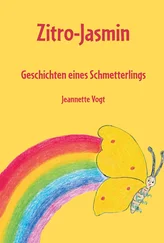AFTER THAT BUSINESS WITHFidel Hanna, I decided the ranch was no place for my teenage daughter. If she’d go skinny-dipping with Fidel, she’d go skinny-dipping with any ranch hand who took her fancy. To instill a proper sense of caution concerning men, I gave Rosemary copies of True Confessions magazine with articles like “We Met in Alleys and He Led Me Down the Path of Sin.” I also wrote to the Mother Superior at the academy in Prescott, telling her that Rosemary had matured and was eager to try boarding school once more.
Rosemary didn’t want to go, but we packed her off again. No sooner had she left, it seemed, than we began receiving letters full of homesickness as well as reports of the D’s and F’s she was earning. All she wanted to do, the Mother Superior wrote, was draw pictures and ride horses. I was getting pretty exasperated with Rosemary, but also with those nuns, who I wished would learn to cut a fourteen-year-old daydreamer a little slack.
But by then we had something a lot bigger to worry about.
The Poms wrote us a letter saying that, with the war on, they were going to sell the ranch to put their money in the munitions industry. If we could pull together a group of investors, they’d entertain our offer, but from that moment forward, the ranch was on the market.
Jim and I had been squirreling away everything we could, and our savings were considerable-particularly because the Poms had given Jim bonuses during good years-but we didn’t have nearly enough to buy Hackberry, much less the entire spread. Jim talked with neighboring ranchers about forming various kinds of partnerships. He also met with a few bankers, and I called Buster in New Mexico, but the fact was, because of the war, hardly anyone had two extra nickels to rub together. People were rationing cloth, collecting tin cans, and growing victory gardens.
Most people.
* * *
Late on a January morning, a big black car pulled up in front of the ranch house, and three men got out. The first was wearing a dark suit, the second had on a safari jacket and leather gaiters, and the third wore a big Stetson, pressed jeans, and snakeskin boots. Suit introduced himself as the Poms’ lawyer. Gaiters turned out to be a movie director famous for his westerns who was interested in buying the ranch. Boots was some rodeo cowboy Gaiters had cast in a few bit parts.
Gaiters, a beefy, red-faced man with a groomed silver beard, was one of those people who acted as if everything that came out of his mouth, even the most obvious remark, was profoundly interesting. Each time he said something, he’d look over at Suit and Boots, who’d either chuckle appreciatively or nod sagely. It took Gaiters about three minutes to mention that he’d worked with John Wayne, or, as he called him, Duke. He said things like “Duke’s the ultimate natural” and “Duke’s first take is always his best take.”
When Old Jake shuffled out from the barn, Gaiters was standing on the porch, surveying the land. He pointed to a willow next to the pond. “That’s picturesque,” he said. “Good place to plant a willow.”
“Ain’t got time around here to go planting no picturesque trees,” Old Jake said. “I reckon it just growed there.” He limped back to the barn, shaking his head.
Jim and I showed them around, but since we weren’t particularly keen on seeing the place sold out from under us, Jim was even more taciturn than usual. Gaiters, for his part, acted almost as if we didn’t exist. He never asked questions. He and Boots kept tossing ideas at each other about how to improve the place. They were going to build an airstrip to fly in from Hollywood. They were going to install a gasoline-powered generator and air-condition the ranch house. They might even put in a pool. They were going to double the herd and breed palominos. It was clear that Boots was this rhinestone cowboy who had dazzled Gaiters with horse jargon and rope tricks when, in fact, he didn’t know diddly about ranching.
In the middle of our tour, Gaiters stopped and looked at Jim as if seeing him for the first time. “So you’re the manager?” he asked.
“Yes, sir”.
“Funny, you don’t look like a cowboy.”
Jim was wearing what he always wore: a long-sleeve shirt, dirty jeans with the cuffs turned up, and round-toed work boots. He looked at me and shrugged.
Gaiters studied the weathered gray outbuildings with his hands on his hips. “And this doesn’t look like a ranch,” he said.
“Well, that’s what it is,” Jim said.
“But it doesn’t feel like one,” Gaiters said. “The magic is missing. We need to goose the magic.” He turned to Boots. “You know what I see?” he asked. “I see everything in knotty pine.”
And knotty pine it was. After buying the place, Gaiters tore down the ranch house and built a fancy new place with exposed beams and walls of varnished knotty pine. Then he tore down the bunkhouse and built a new one in matching knotty pine. He renamed the spread the Showtime Ranch. True to his word, he put in the airstrip and doubled the size of the herd.
Gaiters also fired Big Jim and Old Jake. They were too old and too old-fashioned-”old-timers,” he called them-and he said he needed people who would help him goose the magic. Then he fired all the ranch hands, who were mostly Mexicans and Indians, because he said they didn’t look like cowboys. He hired Boots to run the place and brought in a bunch of fellows from the rodeo circuit who wore tight new jeans and embroidered shirts with pearl snap buttons.
We had lived on that ranch for eleven years, and we loved the place. We knew each and every one of those 180,000 acres-the gullies and washes and mudflats, the sagebrush plateau, the boulder-strewn mountains and juniper-covered foothills-like we knew our own hearts. We’d respected the land. We knew what it could and couldn’t do, and we’d never pushed it beyond its limits. We’d never squandered the water, and we’d never overgrazed the grass, unlike our neighbors. Anyone riding the fence line would see grass four inches high on our side and one inch on theirs. We had been good stewards. The buildings may have been a little rough on the eyes, but they were in good repair, still solid and true. There wasn’t a more honestly run ranch in all of Arizona. We’d known all along, of course, that we didn’t own the place, but at the same time, we couldn’t help considering it ours, and we felt dispossessed, like my dad and his pa did when the settlers started fencing in the Hondo Valley.
“Guess I’ve been put out to pasture,” Jim said after Gaiters delivered the news.
“You know you’re the best at what you do,” I told him.
“Just seems like what I do don’t need to be done anymore.”
“We’ve never felt sorry for ourselves before,” I said, “and we’re not going to start now. Let’s get packing.”
We had our savings, so we weren’t in a bind financially. I decided we should move to Phoenix and make a fresh start. Arizona was changing, money was pouring in. Because it had perfect weather for flying, the air force had discovered the state, building bases and landing strips all over the place. At the same time, lungers-folks with breathing problems- were arriving in droves, and what was more, air-conditioning had become affordable, making places like Phoenix appealing to all those eastern lace-panties who couldn’t tolerate its true temperatures. The city looked like it was going to take off.
When I called Rosemary to tell her we were leaving the ranch, she became almost hysterical. “We can’t, Mom,” she said. “It’s all I’ve known. It’s inside me.”
“It’s behind you now, honey,” I said.
Little Jim was beside himself as well and said he outright refused to go.
Читать дальше









